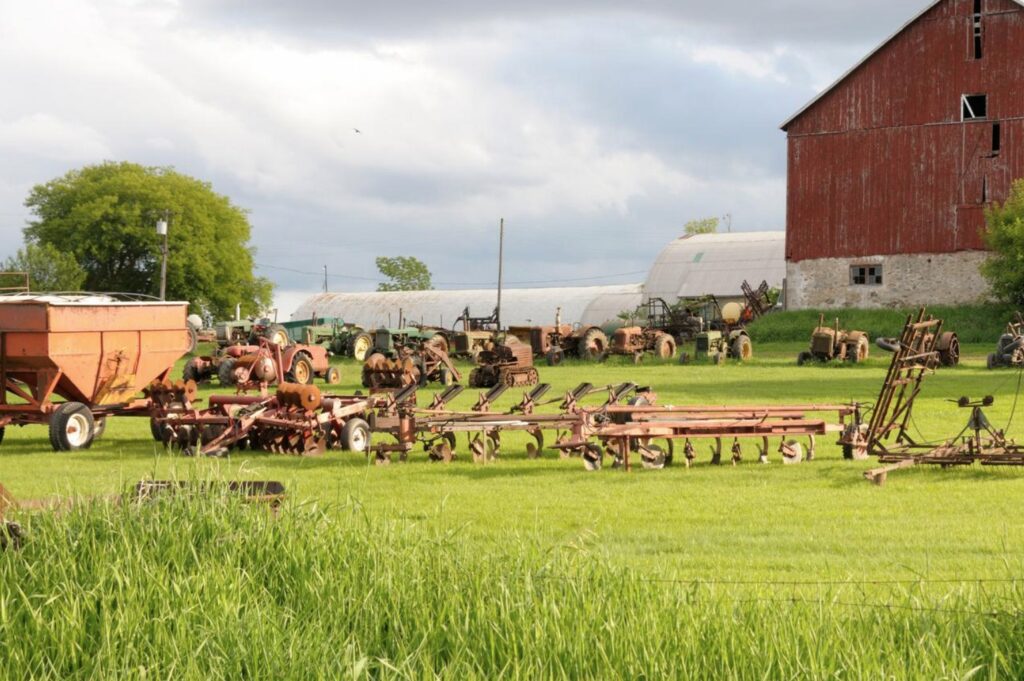Farming is a way of life deeply intertwined with cycles of nature and the volatility of markets. Financial uncertainty is a constant companion as a result of erratic weather impacting yields, fluctuating prices, labor shortages, unexpected breakdowns, and a host of other challenges. Uncertainty is part of the terrain. That is why developing a financial readiness mindset around your farm and personal finances isn’t just good practice—it’s essential for navigating the ups and downs inherent to farming while ensuring the long-term health of your operation and your peace of mind.
So what does a financial readiness mindset mean? It’s about shifting from a reactive stance—dealing with problems only as they arise—to a proactive one. It involves anticipating potential challenges and opportunities, understanding your current financial landscape, and consciously building a foundation designed to withstand shocks. It’s less about fearing the worst and more about empowering yourself to handle whatever comes your way.
Cultivating a financial readiness mindset is important for everyone, but critical for farmers because of the long lead times needed to make adjustments and pivots. For a farmer, a readiness mindset means looking beyond the current season or market report to proactively prepare for potential downturns and unexpected costs. It’s about knowing your numbers, understanding the specific contours of your operation, and structuring your finances to withstand shocks, whether they come from a drought, a dip in prices, or a personal emergency.
What Does Financial Readiness Look Like?
Below are five key components to a strong financial readiness strategy:
1. Robust Emergency Fund
Go beyond a standard personal emergency fund. Set a goal of developing a separate emergency or contingency fund that covers critical farm operating costs such as loan payments, labor costs, feed, or other essential inputs during lean times. This buffer prevents forced sales of assets or reliance on high-interest debt when cash flow tightens.
2. Detailed Financial Planning & Records
Know your cost of production inside and out. Maintain accurate records and develop realistic cash flow projections and budgets for both the farm operation and your household. This clarity is vital for making informed decisions.
3. Strategic Use of Insurance
Utilize crop insurance effectively to mitigate yield and revenue risks. Ensure adequate liability, property, and equipment insurance, alongside essential health coverage for your family. These are crucial risk management tools.
4. Proactive Debt Management
Understand your debt structure, from operating lines to equipment loans and land mortgages. Have a plan to manage payments, and use profitable periods strategically to pay down debt or build reserves.
5. Exploring Risk Management
Consider diversifying income streams (different crops, livestock, off-farm income), utilizing marketing contracts, and staying informed about relevant government support programs.
Each one of these steps positions you and your farm to respond to threats more quickly. Since you’ve already done the foundational preparation, you’re able to see, discard, and select your actions more quickly, because you have cash reserves in place and identified possible courses of action.
When faced with a challenge, preparedness replaces panic, and you’re able to pivot quickly.
Having a contingency fund means you can make necessary repairs, service debt payments, and meet your family’s needs. Having proper coverage and trusted partners identified means you know where you can turn for help.
If you don’t have an emergency fund in place for your family or your farm operation, don’t get overwhelmed. Instead, take the time to think how to get these pieces in place, think through plans for how you might respond to an emergency, and set some savings targets to begin working toward. Start with a one-month target or a half-month target. Most importantly, just start. Ask yourself questions about who in your circle would be the best resource for your farm and your family.
Ultimately, a financial readiness mindset builds resilience for both your farm operation and your family. It provides a framework for managing risks and making thoughtful decisions under pressure quickly, ensuring you’re better positioned to weather the storms.

